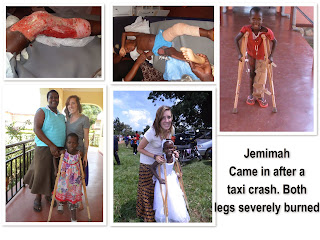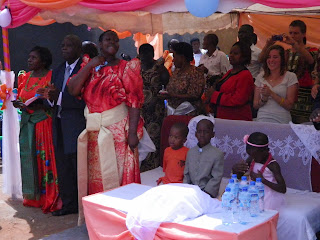:: Here there is not Greek and Jew, circumcised and uncircumcised, barbarian, Scythian, slave, free; but Christ is all and in all.::
-Colossians 3:11
For the last week I spent my time in Karamoja. We spent the week visiting children at the school for the deaf, visiting families with children with special needs, giving trainings to sunday school teachers, and just living life with the Karimojong.
The Karimojong here are a special group of people. To best describe the Karimojong it is easiest to divide the post into three major categories: 1. The typical Ugandan view of the Karimojong, the history of the Karimojong, and my view of the Karimojong.
The idea that most Ugadan's have about Karamoja.
Before leaving for Karamoja many of the staff members here had warnings about what we would see. Many told us that the Karimojong refuse to wear clothes, they are hostile, nomadic, and cattle raiders. They told us that they walk around with guns just shooting one another. They look down on the Karimojong as a lower tribal group and not one that they would necessarily want to associate with.
History of the Karimojong
Many of these ideas that other Ugandan tribal groups think do come from factual and historical events. The Karamojong were cattle raiders and did kill one another over cattle. Cattle was their lively hood. Because of all the conflict between one another the government took most of the cattle and disarmed the Karimojong. This has left a loss in identity for many of the Karimojong and a loss of pride.
Due to their arid climate they did move their homes for 3-4 months out of the year. In Karamoja the seasons change from rainy, to windy, to completely dry. Not entirely suitable for livestock or vegetation. The availability for water and food is always a concern.
My view of the Karamojong
The Karamojong were some of the most welcoming, loving, and friendly people I have met in Uganda. They have a real sense of community and communal living. For a group of people who have gone through so much conflict and who endure such hard living conditions everyday; they were so loving and open with us. From the kids at the school for the deaf running up to our cars the second we pulled in, to Mama Esther welcoming us into her home for the week, and then Paulo and Adam's families embracing us with hugs and letting us sit with their children for hours; we really felt like part of their community. You could say that this was because we were the white people coming into a town that other Ugandans don't dare venture too, or because we were coming to visit the children who most people don't dare to spend time with. But seeing the layouts of their homes, the open doors, the reliance of one another, the genuine generosity, and the sense of community is so evident in this area and in these people.
Just like every group of people the Karimojong have their struggles. With loosing their identity and livelihood in cattle alcoholism has increased and the idea of living in poverty has lead to an increase of begging in the younger generation. It is due to these struggles of the Karimojong and their past other Ugandans have struggled to get past their initial ideas of the Karimojong and their fear of this particular group of people.
So what now?
:: Put on then, as God's chosen ones, holy and beloved, compassion, kindness, humility, meekness, and patience, bearing with one another….and above all these put on love; which binds everything together in perfect harmony. And let the peace of Christ rule in your hearts to which indeed you were called in one body.::
-Colossians 3: 12-15
As Christians we are not to discriminate against anyone. All we are simply to do is bear with one another in our struggles and love one another well. As we are all apart of one body and united in one Christ.
Paulo. One of the boys with Autism in Kangole.
Two of the students at the school for the deaf.
Adam and his mother.
The cattle center where people can keep their little herds.















